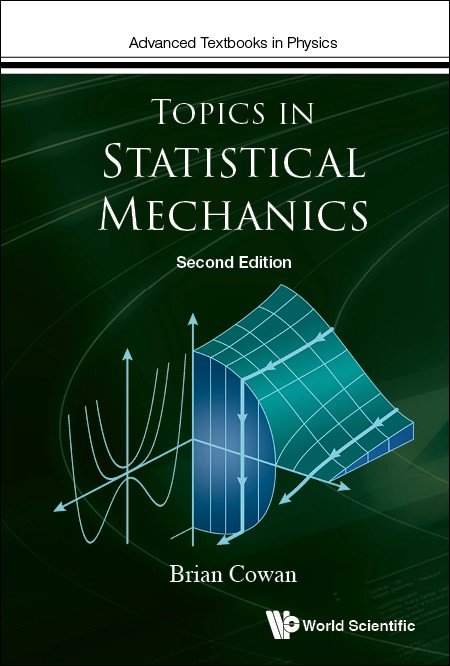System Upgrade on Tue, May 28th, 2024 at 2am (EDT)
Existing users will be able to log into the site and access content. However, E-commerce and registration of new users may not be available for up to 12 hours.For online purchase, please visit us again. Contact us at customercare@wspc.com for any enquiries.
Building on the material learned by students in their first few years of study, Topics in Statistical Mechanics (Second Edition) presents an advanced level course on statistical and thermal physics. It begins with a review of the formal structure of statistical mechanics and thermodynamics considered from a unified viewpoint. There is a brief revision of non-interacting systems, including quantum gases and a discussion of negative temperatures. Following this, emphasis is on interacting systems. First, weakly interacting systems are considered, where the interest is in seeing how small interactions cause small deviations from the non-interacting case. Second, systems are examined where interactions lead to drastic changes, namely phase transitions. A number of specific examples is given, and these are unified within the Landau theory of phase transitions. The final chapter of the book looks at non-equilibrium systems, in particular the way they evolve towards equilibrium. This is framed within the context of linear response theory. Here fluctuations play a vital role, as is formalised in the fluctuation–dissipation theorem.
The second edition has been revised particularly to help students use this book for self-study. In addition, the section on non-ideal gases has been expanded, with a treatment of the hard-sphere gas, and an accessible discussion of interacting quantum gases. In many cases there are details of Mathematica calculations, including Mathematica Notebooks, and expression of some results in terms of Special Functions.
Sample Chapter(s)
Preface
Contents:
- The Methodology of Statistical Mechanics
- Practical Calculations with Ideal Systems
- Non-ideal Gases
- Phase Transitions
- Fluctuations and Dynamics
- Appendices:
- The Gibbs-Duhem Relation
- Thermodynamic Potentials
- Mathematica Notebooks
- Evaluation of the Correlation Function Integral
- Bose–Einstein and Fermi–Dirac Distribution Functions
Readership: Final year undergraduates, Masters and PhD students in Statistical Mechanics, Thermodynamics and Phase Transitions.





